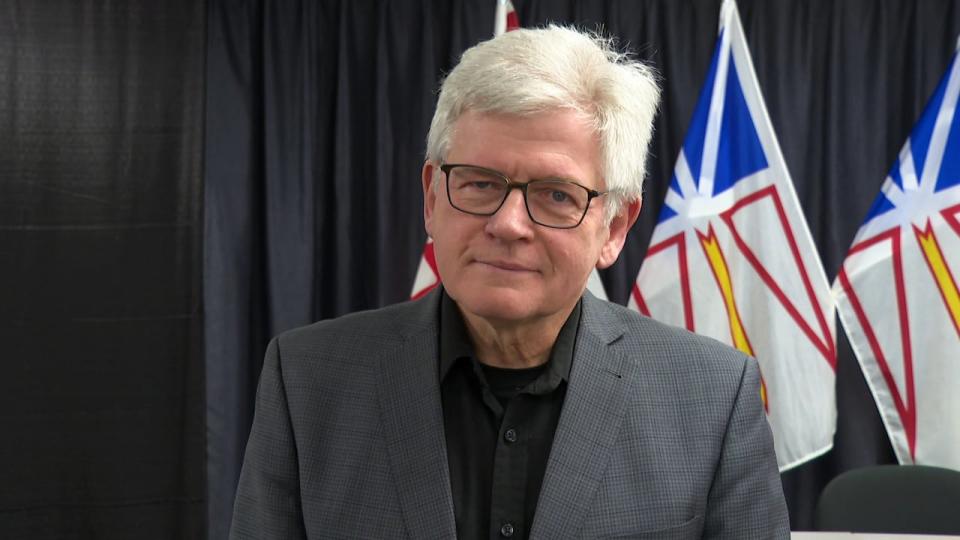NDP Leader Jim Dinn says government's think-tank plans won't stop teachers from quitting


NDP Leader Jim Dinn says the government should do more to address classroom problems that are prompting one in six teachers to consider quitting. (Peter Cowan/CBC)
The results from a survey of 2,200 teachers led the provincial government to announce changes to the education system last week, but the NDP leader says those solutions don't tackle class sizes or teacher retention, and will do little to assuage the concerns of educators in Newfoundland and Labrador.
NDP leader Jim Dinn said Monday that the government's promise of $450,000 to tackle mental health isn't enough to keep teachers from quitting and entice more to take on the job.
"I've talked to many good teachers who are just going to resign," Dinn said. "They've had enough and they feel unsupported."
The Newfoundland and Labrador government, following its massive Teachers Think Tank online survey earlier this year, said Friday it will provide a $450,000 grant to the Newfoundland and Labrador Teachers' Association to enhance mental health support for teachers.
It will also create a committee led by the teachers' association president and the deputy education minister to address teacher recruitment and retention, offer two floating positions to relieve pressure on French-language rural educators and pay for more teaching assistants for the rest of this school year.
"The Teachers Think Tank demonstrated how these types of discussions can yield honest conversations and innovative solutions. I believe the initiatives we announced today are a starting point for positive change moving forward," Premier Andrew Furey said in a statement.
About 42 per cent of administrators who responded to the survey said their teaching staff were either stressed and anxious or generally harboured negative feelings toward the quality of their workplace.
The survey also found about two-thirds of substitute teachers weren't seeking permanent employment, in part due to the stress and burnout of teaching full-time.
More than four out of five teachers said their jobs were negatively affecting their mental wellbeing and causing burnout. One in six said they were considering quitting.
As a former teacher and a former president of the NLTA, Dinn says he often hears concerns regarding class sizes that teachers have to manage. In other cases, classes have students with complex needs, which prevent some teachers from being able to provide one-on-one support to all students.
The latest solutions from government, Dinn says, are like "providing a garden hose to fight a fire."
"We have measures that, at one level, yes, will seem to support the mental health needs of teachers," he says.
"But at the same time, what most teachers are looking for is the ability to do their job in the classroom."
Download our free CBC News app to sign up for push alerts for CBC Newfoundland and Labrador. Click here to visit our landing page.


